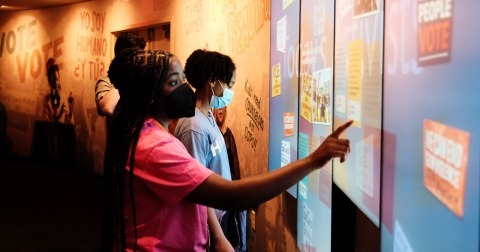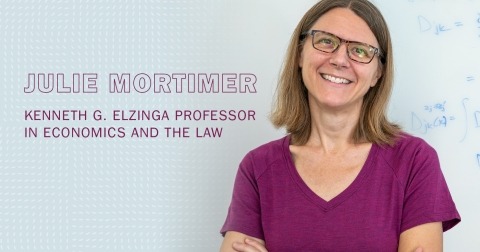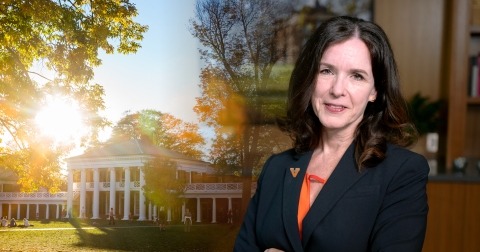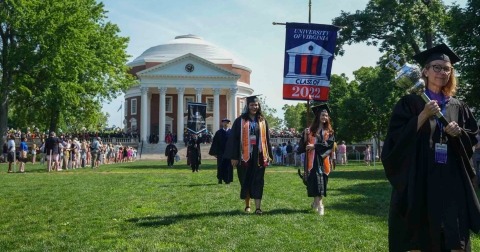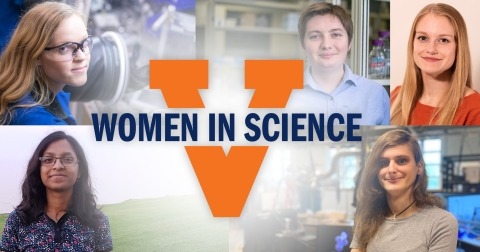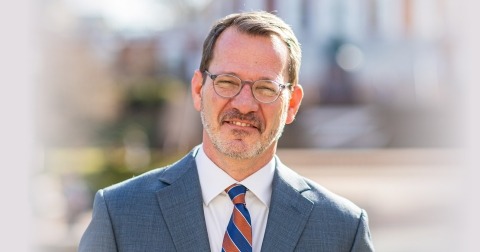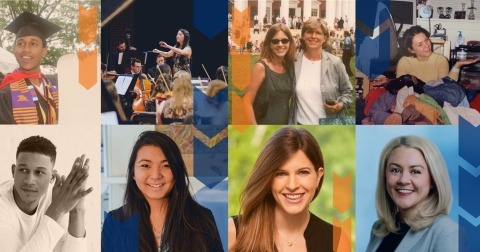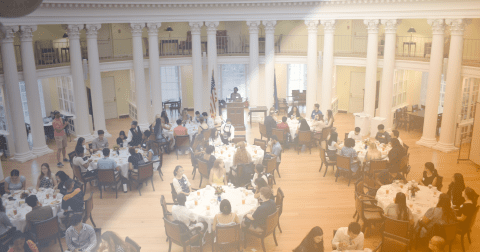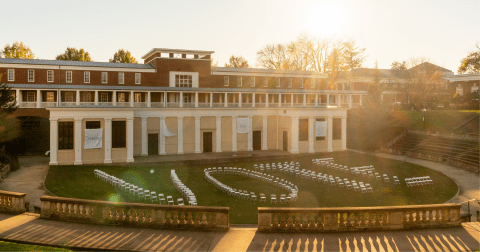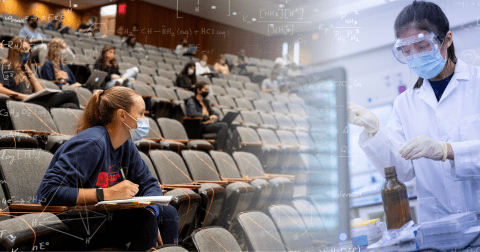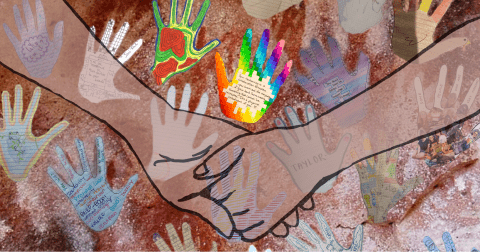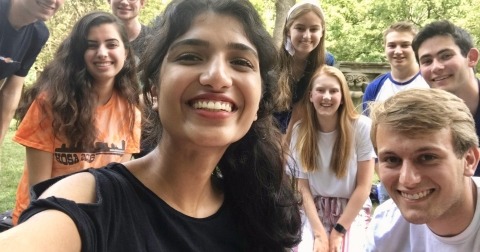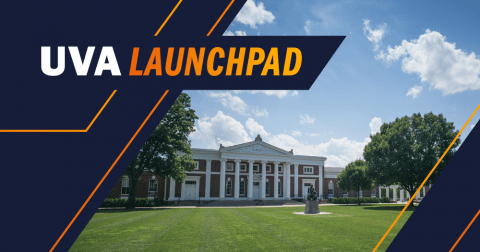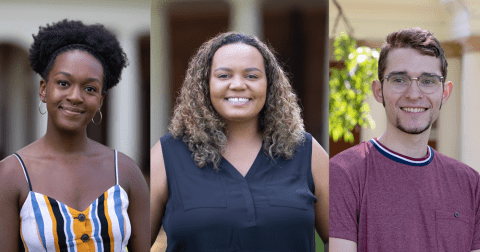The Graduate School of Arts & Sciences aims to prepare its students for a lifetime of inquiry, discovery, and creative expression in academia and as professionals in a variety of sectors and fields. Collaborations with A&S faculty mentors can prove critical in these students’ development. At the same time, A&S faculty benefit greatly from the research and teaching assistance provided by the ambitious, talented graduate students.
These collaborative relationships between professors and graduate students often lead to breakthrough discoveries and scholarship produced by their shared knowledge and talents, fueling UVA’s aspirations as a recognized high-performing research university.
Graduate students driving distinction in Politics
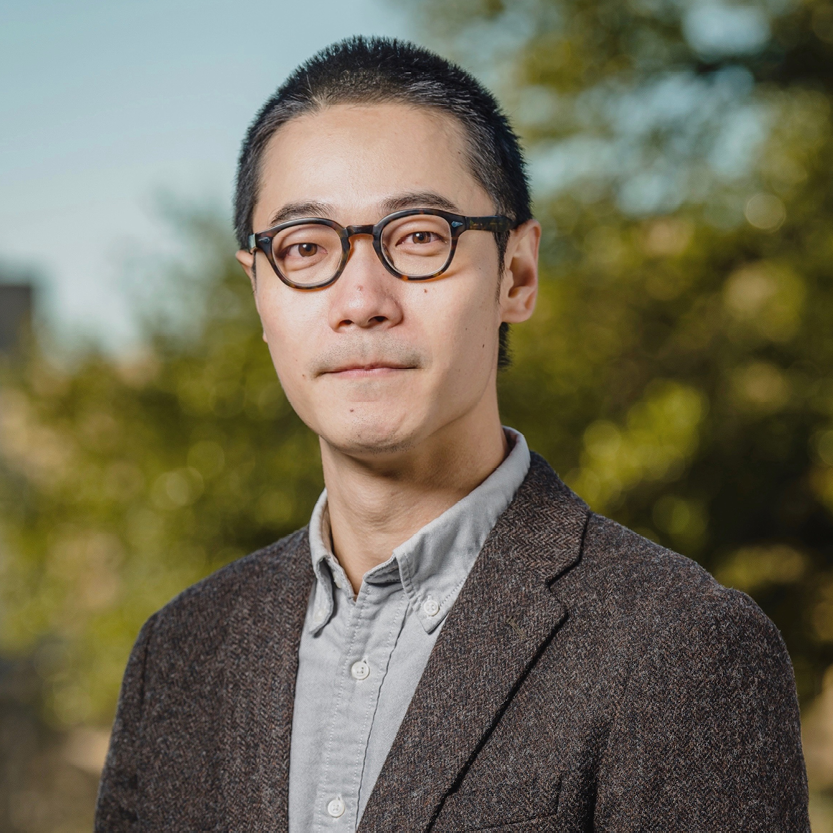
In the cases of two recent Ph.D. graduates of the Department of Politics, their collaborations with distinguished faculty mentors led to opportunities to publish in field-defining and highly respected venues before they even hit the academic job market. This December, Chen Wang, now an assistant professor at the University of Idaho, and Benjamin Helms, a postdoctoral fellow at Carnegie Mellon University’s Institute for Politics and Strategy, will celebrate the fruit of long-term collaborative research projects with their Graduate School mentors: co-authored books to be published by Cambridge University Press, the oldest — and one of the most prestigious — university presses in the world.
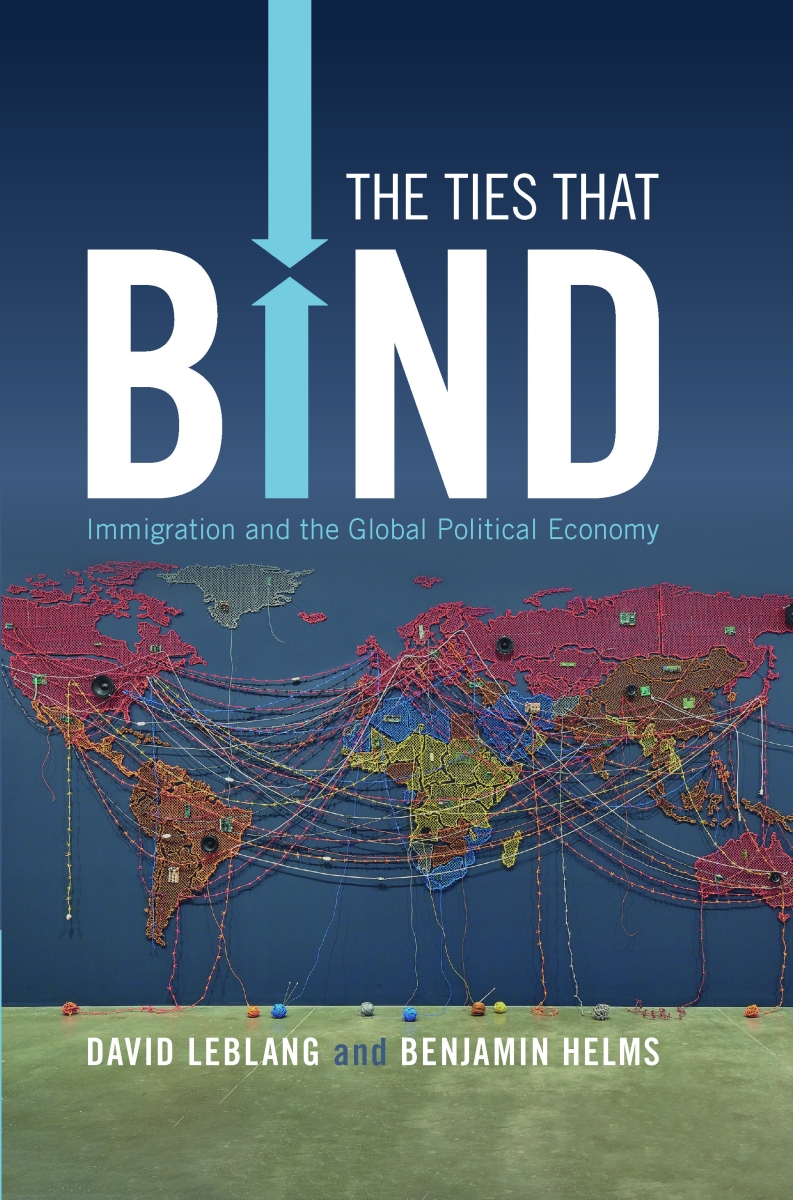 The first book, The Ties That Bind: Immigration and the Global Political Economy, co-authored by Helms and the University of Virginia’s Ambassador Henry Taylor Professor of Politics, David Leblang, examines one of today’s key domestic and global political issues: the causes and consequences of migration and its relationship with global markets.
The first book, The Ties That Bind: Immigration and the Global Political Economy, co-authored by Helms and the University of Virginia’s Ambassador Henry Taylor Professor of Politics, David Leblang, examines one of today’s key domestic and global political issues: the causes and consequences of migration and its relationship with global markets.
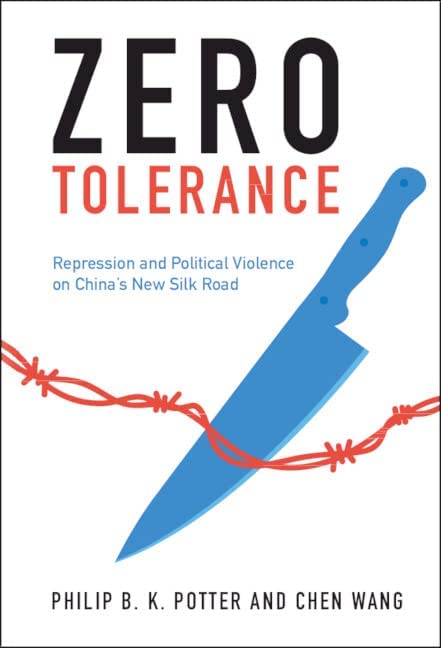 The second book, Zero Tolerance: Repression and Political Violence on China’s New Silk Road, is co-authored by Wang and his Ph.D. advisor, Associate Professor Philip Potter. Their book examines China's mistreatment of its Uyghur minority and how the Chinese government’s insecurities about the stability of the regime and its claim to legitimacy have motivated the ferocity of its crackdown. Harsh repression, sophisticated media control and selective international military cooperation, Potter and Wang conclude, could influence international politics for years to come because of China's growing economic and military power.
The second book, Zero Tolerance: Repression and Political Violence on China’s New Silk Road, is co-authored by Wang and his Ph.D. advisor, Associate Professor Philip Potter. Their book examines China's mistreatment of its Uyghur minority and how the Chinese government’s insecurities about the stability of the regime and its claim to legitimacy have motivated the ferocity of its crackdown. Harsh repression, sophisticated media control and selective international military cooperation, Potter and Wang conclude, could influence international politics for years to come because of China's growing economic and military power.
“Being a graduate student and trying to do a range of research projects at the same time is definitely a balancing act,” said Helms, who completed his Ph.D. last spring and now works on research projects related to the domestic politics of globalization and the political economy of international migration. “From the beginning of my time at UVA, though, I felt a strong sense of support among the international relations faculty and a sense they were going to get me into collaborative relationships early so that I could develop as a scholar quickly. That's been an immeasurable help for me on the academic job market where being research-productive in graduate school is almost a prerequisite to getting a good academic position. That early mentorship from David [Leblang] and from other people in the Politics Department was incredibly influential in getting me where I am today.”
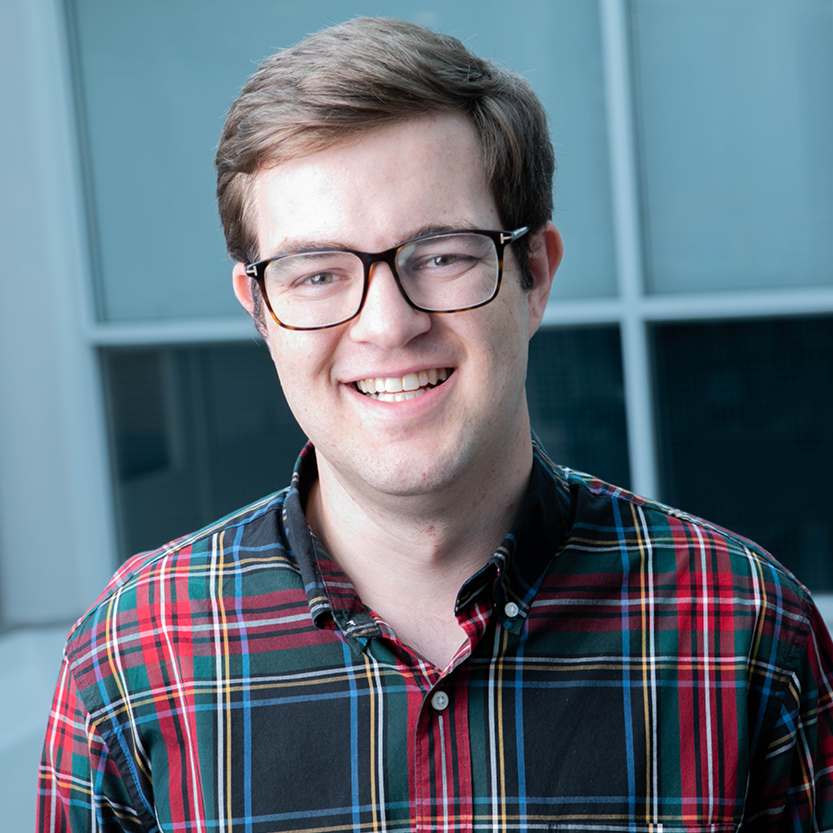
Wang first emailed Potter for advice on a paper he was researching as an economics master’s student at Johns Hopkins University before coming to UVA for his Ph.D. Like Helms, he credits his collaborations with UVA faculty with providing an early understanding of how the academic world works. “I still feel like my writing style, and my approach to research is heavily influenced by my collaboration with Philip Potter,” said Wang, who completed his Ph.D. in 2021, and spent a year at Duke University as a postdoctoral fellow before accepting a tenure-track position at the University of Idaho. “I was able to learn how a more established scholar approaches a puzzle, and where there are some questions that really cannot be addressed, how you deal with that. Do you just ignore that, or do you find a way to frame it so that you can convince your potential reviewers that this is the best of what we can do in the face of these challenges? All those things are super helpful.”
A fundamental role in A&S success
The Graduate School’s efforts to cultivate the talents of ambitious Ph.D. and master’s students by providing mentorship opportunities with distinguished faculty such as Leblang and Potter do not merely serve to provide these students a springboard to individual success. Graduate students, in the classroom and in labs and other research and creative spaces provide critical boosts to the larger academic mission of the College and Graduate School of Arts & Sciences. Both Leblang and Potter also credit Helms and Wang for propelling forward and focusing their own research on the book projects.
Investments in graduate students’ education through guaranteed, multi-year financial support, opportunities to develop their teaching skills, and other resources in support of mentoring and professional development ensure the Graduate School will remain competitive for the top students globally, which in turn benefits the overall academic standing of UVA.
“Graduate students are essential nodes in a larger ecosystem of ground-breaking and leading-edge research, discovery, and creative expression,” Arts & Sciences Dean Christa Acampora said. “They work in laboratories, serve as thought partners and research assistants, contribute to new scholarship and discovery, and teach and mentor undergraduate students. Everyone who has ever served as a graduate student mentor knows that these relationships are mutually enriching and rewarding. Indeed, they can be transformative, not only for the mentee but also for the mentor. Thus, an investment in graduate education is good for students, good for the university, and good for discovery, research and creative activity. In short, this is how we become great.”
“It’s because they make the intellectual work of this university go. If you want that intellectual work to keep happening, and you want UVA to be a prestigious place that is known as a first-tier undergraduate institution with first-tier faculty, it also needs to have first-tier graduate students. And that requires financial support.” - Philip Potter, Assoc. Prof. of Politics
Studying rapidly evolving fields such as national security, terrorism and political violence and other international relations topics, Potter said that faculty rely on talented, creative graduate students such as Wang and Helms who are well-versed in the most current methods of sophisticated data analysis and who are eager for mentors to guide them in applying their raw intellectual talents.
“It’s that juxtaposition of eagerness and experience, of cutting-edge training with the ability to produce the craft that I think gets you what you want,” Potter said. “There is a real need for methodical, steady state investment in our graduate programs. You’re not going to get or retain the best faculty unless they are able to work with great students who provide a huge boost to their work, and if you don't have the faculty, you’re not going to be able to have the undergrad institution that you aspire to.”
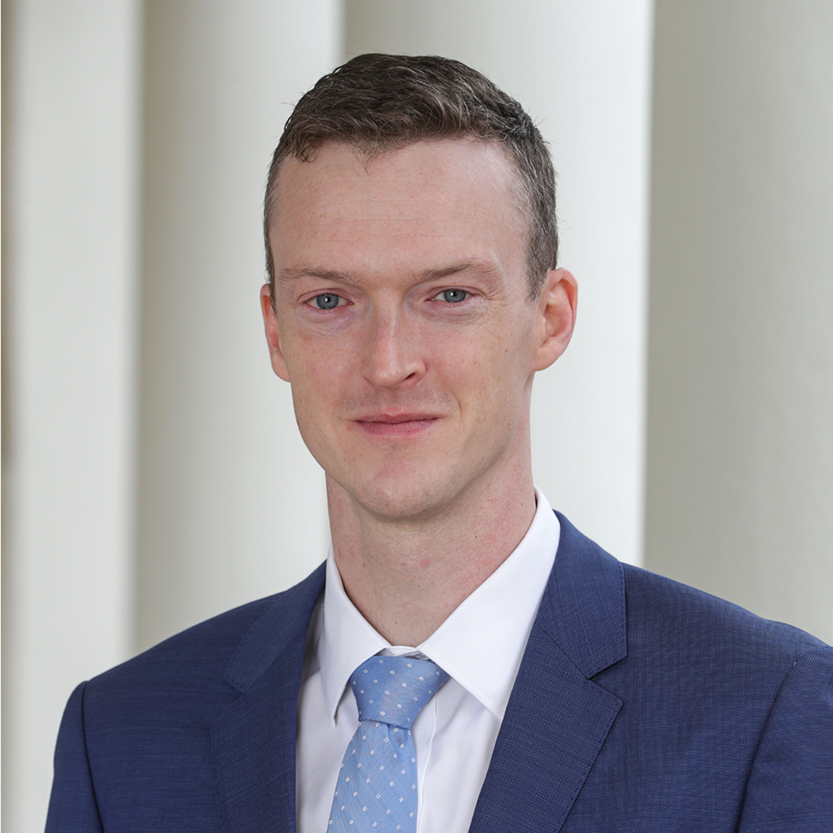
“Graduate students are a hugely important but often unappreciated cog in the wheel, and it is not because they’re teaching assistants,” Potter added. “It’s because they make the intellectual work of this university go. If you want that intellectual work to keep happening, and you want UVA to be a prestigious place that is known as a first-tier undergraduate institution with first-tier faculty, it also needs to have first-tier graduate students. And that requires financial support.”
New perspectives enrich the faculty
In Helms’ and Wang’s chosen fields of study, co-authoring a book is not notably better than successfully publishing articles in peer-reviewed journals, said Potter, author of two previous books and the director of graduate students for the Department of Politics. What these book-length projects did offer, though, were opportunities for critical mentoring.
And for Leblang, working with Helms offered him a new lens through which to view his research. As a political economist, his interest in migration focused primarily on how migrants serve as mobile capital, moving from one country to another. The Ties That Bind project had begun as a series of articles that he planned to combine into a book-length work, but the project stalled after several years because he couldn’t envision how to tie them together. He met Helms as a first-year graduate student when he signed up for one of Leblang’s graduate seminars, which ended up getting canceled. Helms decided to take Leblang’s undergraduate seminar on global migration instead, and Leblang ended up hiring him to lead a team of undergraduate and graduate students who were working with on a Department of Homeland Security-funded project.
Leblang then asked Helms to work with him on a survey chapter for a collection of essays published by the Oxford University Press, and that’s when Helms — having reviewed Leblang’s past papers — suggested a new way to frame migration as a series of stages.
“And the stage I hadn’t considered, which Ben identified, is why do people leave? Which is obviously an essential part of immigration, but because I was so focused on the connection between home country and host country, I had ignored it,” Leblang said. “I was taking for granted that people are migrating, and Ben was saying, ‘Well, but we don't have a story about why people go.’ And so, he framed this Oxford chapter through these stages: Why do people go? Once they decide to go, where do they go to? Once they go to that place, how do they connect with their home country? If these connections are beneficial to the home country, how do they connect with their expatriates? He framed it as a series of steps or a sequence of migration that again, once he explained it, you say, ‘Well, of course!’ But I just wasn't thinking about it that way. And so, to say it was a kick in the pants is really an understatement. After that, we were off to the races.”
Researching and writing the book, for Helms, took about three years.
“Working with David, seeing his passion and excitement for working on this topic, it certainly rubbed off on me,” he said. “David’s obviously been a huge inspiration for me and just a fantastic adviser at UVA.”
Ready for the job market
Both Helms and Wang said the unique opportunities afforded them to work on their own research played a role in their success on the academic job market.
“Having a proven track record of producing research, I think it sent a strong signal as a potential hire that you will survive the tenure clock the first four or five years while producing research with meaningful impact,” Wang said. “The second dimension is the guidance of mentors like Phil to help me design my grad program in a way to succeed in the job market. We realized that the market is super competitive for those who narrowly focus on Chinese politics. Phil helped me develop a two-legged development plan: one as a general international relations scholar, and then another with an expertise in China-related topics. That really helped me get my current job, which covers East Asian politics and international security. It's a perfect match between my training, my record, my expertise and the position’s need, so, I appreciate that we found this path in the Ph.D. program.”



